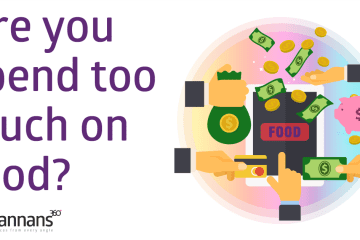The first month or two after Christmas and New Year’s can be financially difficult, but don’t fret, because we have graciously given you a checklist to help you start 2020 off properly.
1. Organising debt and your current finances
I know that this topic has been covered a few times now, but it just shows how important doing this can be.
By going through and clearly setting out all your bills, what you earn, have in savings, and spending, you will be able to see what exactly you will need to spend/save each month.
Print out your bank statements and go through highlighting all the important expenses like rent/mortgage payments and bill – things you can’t save on. This will show you what your total ‘important’ costs are.
Which leads me to the next item on the list…
2. Cancelling any unused subscriptions and memberships
If you don’t really check statements often, you may find that you have some small (or big) expenses just sitting there unnoticed every month, especially if you have coming out through direct debit.
I was very guilty of this myself as I had a subscription for a music lesson app coming out every month, and I haven’t used the app in about 6 months.
Once you notice the little expenses coming out every month, you’ll notice how much it adds up to over a few months. Go through and get rid of the subscriptions and memberships you don’t need or know you won’t need.
3. Finding the right bank account
Check to see if your bank is charging you a monthly fee. If they are, it may be a good idea to see what other banks are offering.
You may not see that the savings are huge straightaway, but it will build up in the long-run.
4. Have a look at your monthly mobile phone contract
Most mobile phone contracts can be very expensive, especially if its the top of the line phone. We sometimes end up paying for more than we actually need/use.
If you are someone that rarely uses your mobile phone, it may be worth having a look either changing to a prepaid contract or a cheaper plan.






